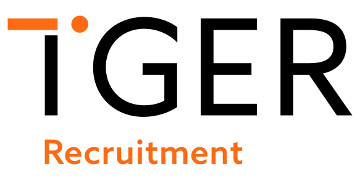A move that is likely to have further impact is the announcement at the Conservative Party Conference earlier this month by chancellor Jeremy Hunt that equality and diversity initiatives and roles would be the first targeted in a civil service job cuts drive.
Why your diversity strategy may not be working
This announcement was symptomatic – perhaps emblematic – of the fact that progress on DEI in the workplace has started to stall and is often the first element of business strategy to be slashed when budgets are tightened.
However, it is important companies recognise that despite the misconception of DEI being a ‘once-and-done’ exercise, without continual investment a business can be detrimentally impacted in the long term.
If organisations want their employees to be engaged and aligned with business objectives, they must be adequately supported.
Our work at INvolve over the last few years certainly points to the growing expectations of employees, who increasingly value how much their employers choose to invest in DEI initiatives.
It seems that as Millennial and Gen Z populations begin to progress within business, fairness and equality are becoming ever more important – with research demonstrating that 77% of Gen Z consider it important that their company supports diversity.
Building fairer recruitment through D&I policy
Meaningful inclusion is important, and prospective employees want to be assured that their career development will be taken seriously, and that companies are confident speaking on and advocating for wider societal issues.
By not actively driving inclusion, companies run the risk of excluding entire talent pools which can be a costly mistake.
Alongside this, while DEI is a force for moral good, the business case has also been long-established and companies that invest in and hold themselves accountable for creating inclusive workplaces enjoy the commercial benefits as a result.
Diversity of thought increases creativity and enhances innovation, something that modern businesses need to be able to harness to stay ahead in an increasingly fast-moving market.
From a productivity perspective, diverse workforces and inclusive cultures benefit businesses – if employees feel safe at work and as though their voices are heard, chances are they will work harder towards shared company goals.
Keeping diversity on the agenda during tough times
When looking to advance this work, organisations can begin by assessing where they currently stand on their DEI journey, for example through HR policy reviews and data collection from employees, which can then be used to develop tailored and ambitious targets.
However, targets must be coupled with comprehensive plans of action for real change to take place.
Action can involve the likes of talent development programmes, which work to ensure high potential diverse talent are not trapped in junior positions with no means to progress, and the implementation of inclusion training which can reduce bias amongst workforces and help to break down the barriers faced by employees of certain backgrounds.
There is no one-size-fits-all approach when it comes to diversity, equity and inclusion – however, as outlined above, all business leaders must be prioritising this work for the sake of their employees as well as their performance.
A strong DEI strategy which is properly resourced makes a business future-proof, allowing them to attract the best talent, retain them and maintain their position within the market. These initiatives must remain front and centre and a key business priority despite times of economic, and other, uncertainty.
Suki Sandhu is CEO and founder of diversity and inclusion consultancy and global network INvolve










